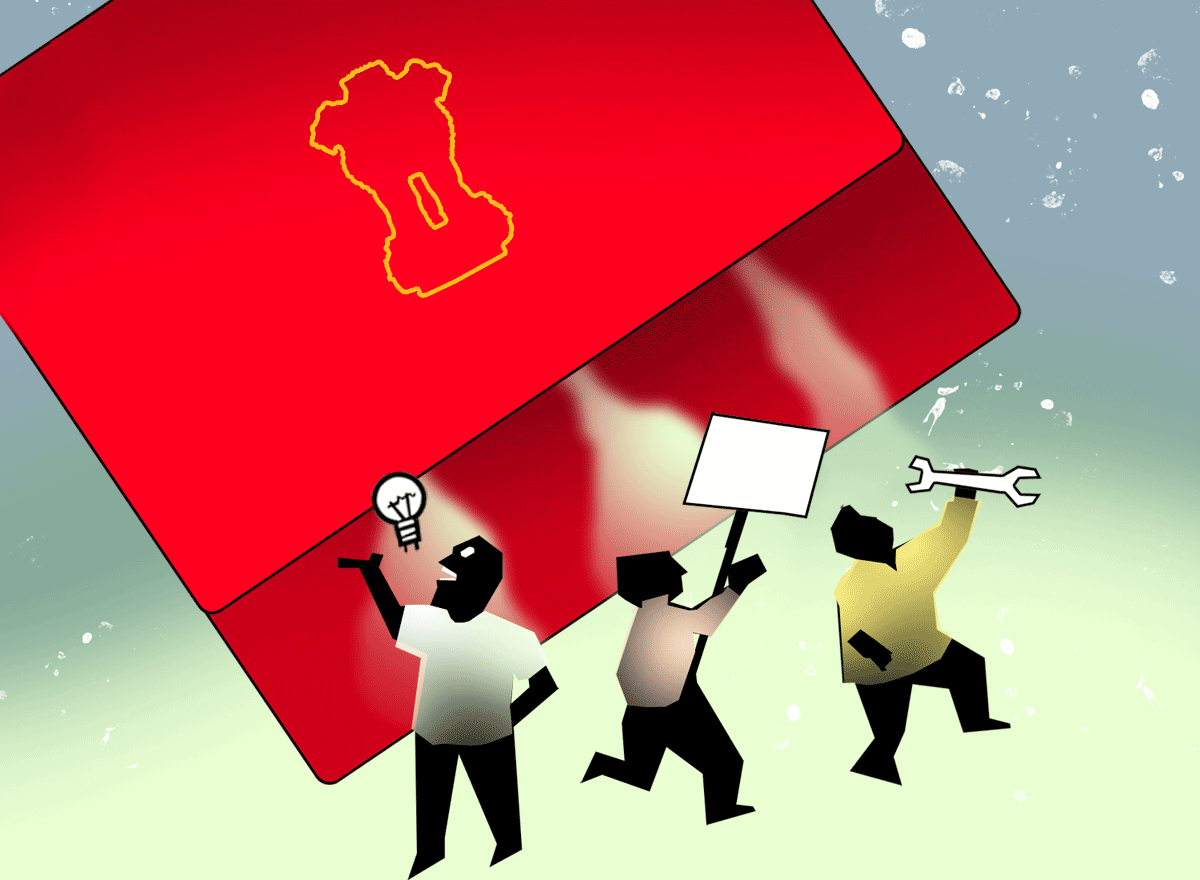 | « Back to article | Print this article |
The generation of quality jobs and skill development should be the focal point, cutting across ministries and departments, asserts Nivedita Mookerji.

With the Union Budget less than a week away, every sign counts, especially as the seat of Budget-making, North Block, is almost sealed.
So when the government renamed the Cabinet Committee on Employment and Skill Development to the Cabinet Committee on Skill, Employment, and Livelihood, the announcement conveyed a message for the Budget.
By putting skill before employment, is the government suggesting that skilling is its main focus area now in the backdrop of a labour shortage that's posing a hurdle in factories and manufacturing hubs?
And by bringing livelihood under the committee's fold, is it broadening the canvas of jobs and employment in the current context? Perhaps.
Besides the reconstituted Cabinet committees, Budget signals have come from the President's address in Parliament, the prime minister's reply, and the first Cabinet meeting of the 18th Lok Sabha as well.
President Droupadi Murmu has said the Budget would roll out historic steps that would cover economic and social issues, and that the focus will be on reforms.
Prime Minister Narendra Modi has spoken about propelling India to the next level of development and reaching the Viksit Bharat (developed India) goal by 2047. He has been emphatic that his government would work at triple speed this time.
The first Cabinet meeting of Modi 3.0 also gave some broad hints on the road map that the Budget may outline related to welfare schemes.
The Cabinet decided that the Centre would provide assistance to 30 million additional rural and urban households for the construction of houses under the Pradhan Mantri Awas Yojana (PMAY).
All these steps may lead to the creation of employment, but, of course, we cannot be certain about the quality and the longevity of these jobs yet.
After the Budget, FY25 will be left with only eight months to go.
In that scenario, this Budget has a chance to be big on ideas that can set the tone for Modi 3.0, without tweaking the numbers much.
It's possible that the Budget has been pushed to July 23 to work on ideas more imaginatively after the election results changed the narrative significantly.
Before the elections, bureaucrats were targeting late June or early July for the Budget.
At that point, neither a coalition government nor a strong Opposition was anywhere in the picture.
If it is actually a Budget with big ideas, the generation of quality jobs and skill development should be the focal point, cutting across ministries and departments.
For that, collaboration between industry and academic institutions, both within the country and overseas, should find a prominent place in Budget-making.
This would mean tie-ups with organisations, businesses and institutions in Taiwan and China, among others, for India's manufacturing push in semiconductors and electronics.
So far, India has only taken baby steps in these areas and would need to collaborate with global powers to make it big in manufacturing and, in the process, create jobs.
In her interim Budget speech in February, Finance Minister Nirmala Sitharaman had mentioned the need for industry-academia collaboration.
This time, the Budget could give the initiative a bigger push.
For that to happen, research and development must get its due as well.
In the February Budget, the FM had announced a Rs 1 trillion corpus to help finance research in technology and had proposed a scheme for deep tech innovation.
But overall, India's R&D spend as a portion of the gross domestic product is below 1 per cent and compares poorly with other economies such as the US, Germany, China and South Korea.
Also, in India, the private sector's gross domestic expenditure on R&D (GERD) has been below 40 per cent of the total.
Globally, in some of the countries focused on innovation such as Japan, the US, Germany and South Korea, a large proportion of the R&D funding, 65 to 70 per cent, comes from private enterprises.
While jobs, innovation and the like could get attention as bureaucrats finetune their proposals, taxes still grab the most eyeballs on the Budget day and in the countdown.
In that context, this is what a Budget watcher who has been part of Budget-making in the past wishes for.
Clean up the direct tax regime across various asset classes to encourage financial savings and further broaden the capital markets; reduce customs tariffs and encourage industry to be part of global supply chains; actively sign free-trade agreements with the larger objective of promoting exports of goods; and set up a 'productivity commission' for agriculture and allied sectors to boost farm incomes.
Now that the FM and her team are done with all the input sessions with stakeholders, it's time to thrash out the big ideas for the D-Day, keeping in mind the need of the hour and the signs all around.
Feature Presentation: Aslam Hunani/Rediff.com